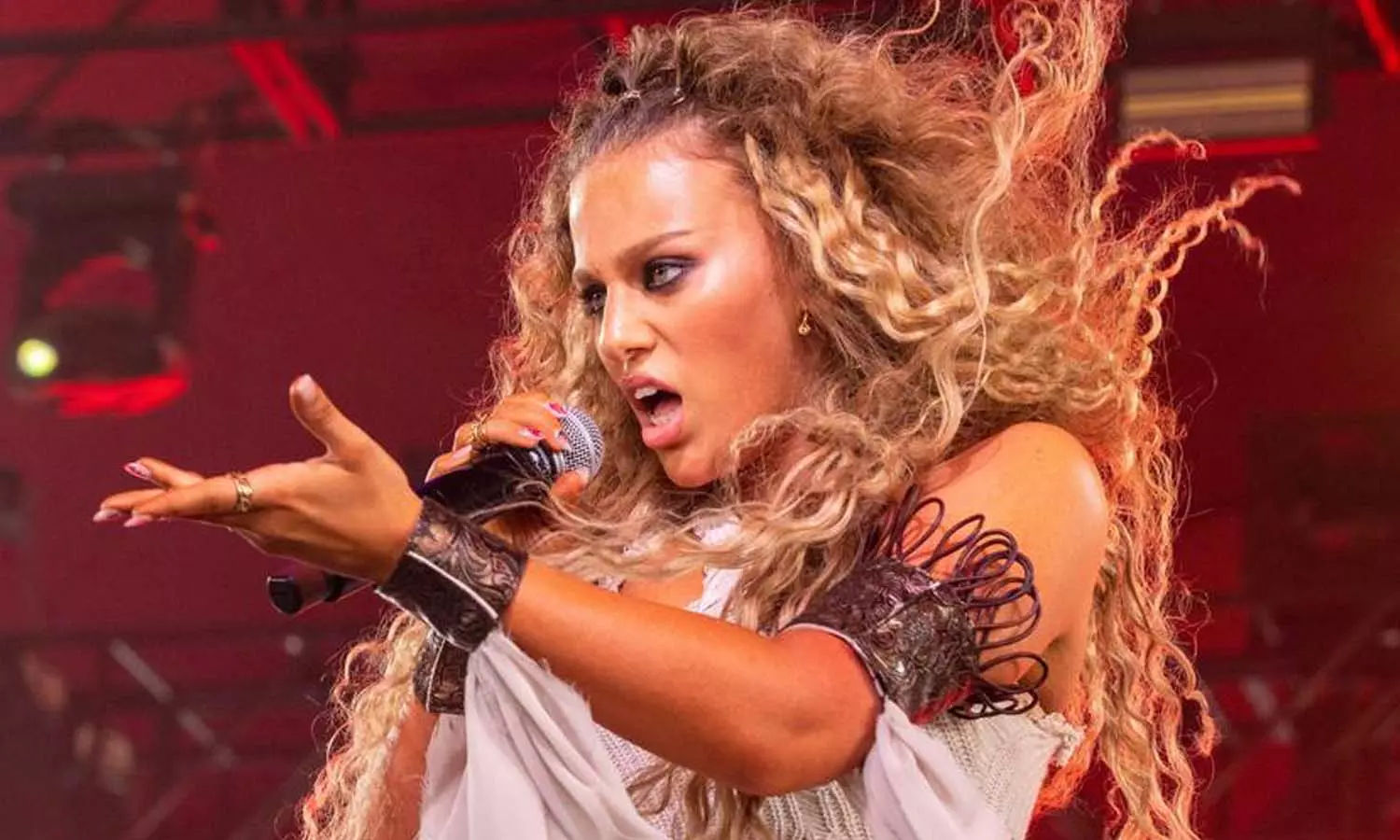Palestinian-Chilean singer poised to take Arabic pop global
Elyanna's fame has taken on a new dimension. In 2023, she became the first Arab artist to sing a full set in Arabic at the Coachella festival in the US.;

Cristina Burack
ISRAEL: Elyanna does not like to be put in a box. It's something the Palestinian-Chilean singer has underlined repeatedly in interviews. Yet despite her dislike of labels, she's currently earning herself one: the young Arab music sensation bringing Arabic-language pop to the global mainstream while challenging perceptions. Ironically, the 22-year-old never planned to sing in Arabic, her native language; she simply tried it out upon suggestion in a recording studio, as she told the Los Angeles Times in 2022. Her decision to embrace the language has paid off: Her first single, "Ana Lahale" ("I'm my own"), released in 2020, has more than 24 million listens on Spotify. And in 2021, she became one of the headlining artists of the newly founded Universal Arabic Music label, a branch of the Universal Music behemoth.
Recently, Elyanna's fame has taken on a new dimension. In 2023, she became the first Arab artist to sing a full set in Arabic at the Coachella festival in the US. Shortly after, Rolling Stone magazine named her one of its 25 artists to watch that year. So far, 2024 has brought a sold-out North American tour, followed by her highly-anticipated first full-length album, "Woledto" ("I am born"), released on April 12.
Like all her music, the album draws on her Palestinian-Chilean identity, mixing Arab and Latin musical influences. The single "Ganeni" ("Make me crazy"), for instance, combines a reggaeton beat and Latin-flavored trumpets with Middle Eastern drumming and a good dose of ululation.
Ramzi Salti, a professor at Stanford University and the host of "Arabology," a podcast on Arab culture and music, attributes Elyanna's broad global and generational appeal to her ability to seamlessly fuse influences. "I know my mom, who is 85, will listen to Elyanna and enjoy her, and my nephew here in Jordan, who is 15 and very particular, will listen to Elyanna," he told DW. "I think it comes back to her ability to mix East and West."
Salti described her as an "Arabic Beyonce" — an artist who, unlike many traditional female Arab singers, isn't shy about putting on a whole show. With the streetwear style of Rihanna, the sensuality of Shakira and fingernails to rival Spanish star Rosalia, Elyanna's creating a distinctive image for herself — one that goes against the stereotypical image of Palestinians often presented in Western media. "In a debate that too often casts Palestinians as either beleaguered victims or bloodthirsty terrorists, Elyanna presented a joyful and powerful representation of Palestinian life," columnist Rob Eshman wrote on the US Jewish news site Forward in 2023.
And unlike Arabic music in general, which can be "alienating to Western audiences until someone explains its, Elyanna doesn't really need to be explained," Salti said. The music, with its dance beats, speaks for itself: "You feel it."
Yet it's her own songs and performances and their grounding in her identity, especially her Palestinian side, that define Elyanna as a musician and have put her on the cusp of conquering the global, English-dominated market.
Elyanna unabashedly celebrates her Palestinian heritage. Her concerts, photos and videos abound with bandanas, henna, traditional Palestinian embroidery, coin-bejeweled accessories and keffiyehs, the black-and-white checkered scarf that symbolizes Palestinian identity. Her posts on her TikTok and Instagram accounts, which each count more than 1 million followers, are peppered with watermelon emojis, a symbol of resistance to Israeli occupation of Palestinian territories, alongside doves, olive branches and white hearts. She also refers to "Palestine," including when she speaks of her birthplace, Nazareth.
Yet Elyanna's music is not political. Her songs tend to be about staple hip-hop topics like love, fame and money. "I don't like politics at all [...] I don't like those things where it's toxic and weird," she told the Los Angeles Times in 2022.

